- Details
- Written by Israel Ministry of Defense
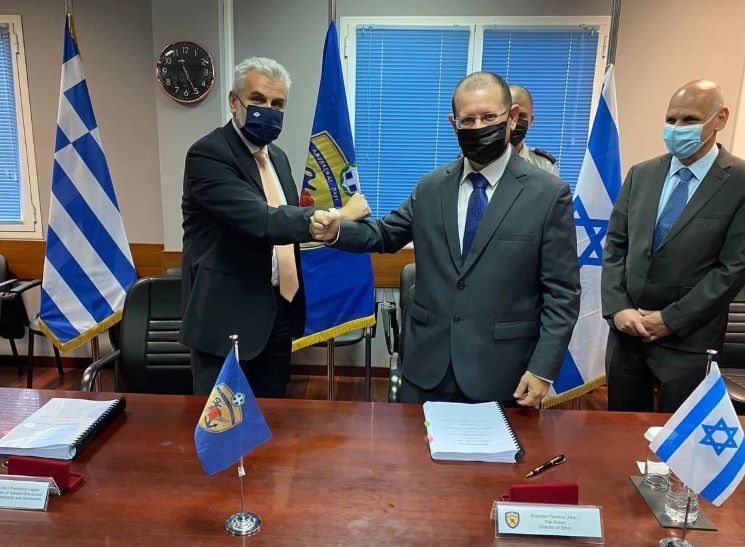
Israel Ministry of Defense and Hellenic Ministry of National Defense Sign Expansive Agreement
The agreement amounts to approximately NIS 5.4 billion and includes the establishment and operation of an International Flight Training Center for the Hellenic Air Force, by Elbit Systems over a period of 22 years.
Defense Minister, Benny Gantz: “This cooperation agreement rests on the excellence of Israel’s defense industry and the strong relations between the defense establishments of Greece and Israel. I thank the Greek Minister of Defense, Nikolaos Panagiotopoulos for promoting the agreement, which we had discussed at the last trilateral meeting held in Cyprus. I am certain that [this program] will upgrade the capabilities and strengthen the economies of Israel and Greece and thus the partnership between our two countries will deepen on the defense, economic and political levels.”
On Friday (16.04.2021), Head of the Directorate for International Defense Cooperation (SIBAT), in the Israel Ministry of Defense, Brig. Gen. (Res.), Yair Kulas signed the biggest defense agreement to date, between the State of Israel and Greece. As part of the agreement, the Israel Ministry of Defense and Elbit Systems will lead the establishment of an International Flight Training Center for the Hellenic Air Force. Modeled after the Israel Air Force (IAF) flight academy, the Greek International Flight Training Center will be equipped with 10 M-346 training aircraft produced by Italian company, Leonardo.
The G-to-G agreement amounts to around NIS 5.4 billion and will span over 22 years. Within the framework of the agreement, Elbit Systems will provide kits to upgrade and operate the Hellenic Air Force's T-6 aircraft. Elbit will also provide training, simulators and logistical support. In the future, the parties will also consider areas of cooperation between the Israeli flight academy and Hellenic Airforce Academy.
SIBAT Director Brig. Gen. (res.) Yair Kulas: "The strategic partnership between the Israel Ministry of Defense and Hellenic Ministry of National Defense is further cemented today, via the signing of the most expansive and one of the most significant defense agreements to date. I would like to thank the Hellenic Ministry of National Defense for choosing Israel and we look forward to future opportunities for partnership and collaboration.
President and CEO of Elbit Systems, Bezhalel (Butzi) Machlis: “We are honored to have been awarded this contract to provide such an important capability to the Hellenic Air Force. This contract award attests to the leading position we hold in the area of training, providing tested know-how and proven technologies that improve readiness while reducing costs.”
Photo credit: Hellenic Ministry of Defense
- Details
- Written by Silvia
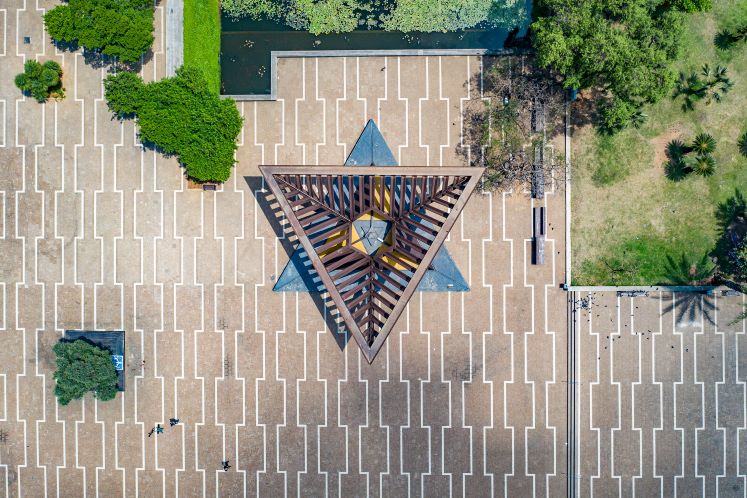
* Holocaust Remembrance Day ceremony at the Cameri Theater * Special ceremony to remember gay victims of the Holocaust * 'Zikaron B'Salon' and Holocaust survivor testimonials across Tel Aviv-Yafo *
Tel Aviv-Yafo, April 6 – Tel Aviv-Yafo will mark Holocaust Remembrance Day (Yom Hashoah), commencing tomorrow evening (Wednesday, April 7). For event coverage, please coordinate in advance with Tel Aviv-Yafo Municipality.
Central Holocaust Remembrance Day ceremony at the Cameri Theater
Wednesday, April 7, 8 p.m., Cameri Theater, 19 Shaul HaMelech Blvd.
The central Holocaust Remembrance Day ceremony at the Cameri Theater will be attended by Mayor Ron Huldai, hosted by Dvir Benedek and feature a series of songs and performances.
The ceremony will be held in accordance with Green Pass regulations. More details here: https://bit.ly/3sSS3Ph
Holocaust Remembrance Day Ceremony in memory of gay community victims
Wednesday, April 7, 7:30 p.m., Beit Ariela, 25 Shaul HaMelech Blvd.
Alternative reading excerpts, acting and singing performances, and a puppet show hosted by the "Proud Ensemble" and featuring an opera singer.
The ceremony will be held in accordance with Green Pass regulations. More details here (Hebrew): https://lgbtqcenter.org.il/yumhashoa/
Holocaust survivor testimonials: "Zikaron B'Salon" across Tel Aviv-Yafo
Commencing Wednesday, April 7, from 6 p.m., at community centers across the city (advance registration required)
- Zikaron B'Salon in Florentin (Hebrew): Join Dani Sheraf at the Florentin Community Center (74 Abarnabel St., 6:30 p.m.) and learn his mother’s story - the family’s sole survivor: https://bit.ly/3rQWnNJ
- Zikaron B'Salon at Gordon Pool (Hebrew): Join Italian Holocaust survivor Ada Bolotin at Gordon Pool (14 Eliezer Peri St., 6:30 p.m.), and learn her inspiring story at this open-air event: https://bit.ly/3wB98jl
- Zikaron B'Salon in Neve Tzedek (French): French speakers are invited to join an evening of remembrance with Clara Brodesh at the Neve Tsedek Community Center (22 Shabazi St., 7 p.m.): https://bit.ly/3rNBTW9
* Reminder: A two-minute siren will be sounded at 10 a.m. on Thursday, April 8 *
Picture of the memorial statue in Rabin Square. Credit to Barak Brinker
- Details
- Written by Yad Vashem
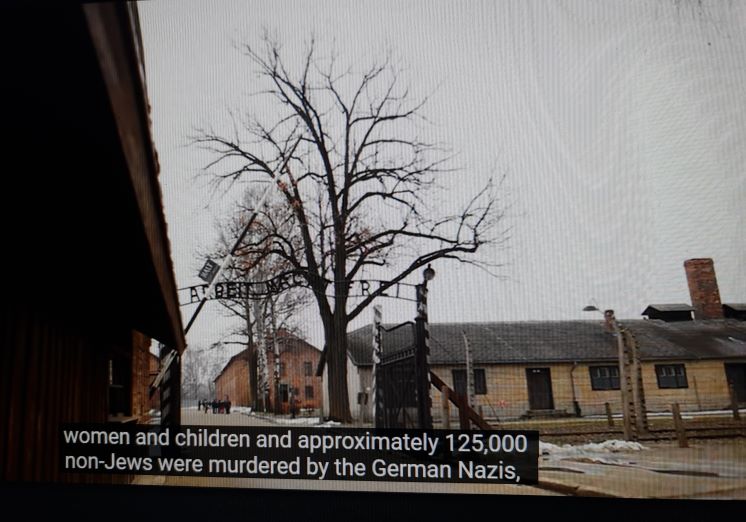
Yad Vashem Marks International Holocaust Remembrance Day
Israel's President will address the Diplomatic Corps serving in Israel at Yad Vashem's Online Symposium on Wednesday – broadcast live on Yad Vashem's YouTube Channel starting at 15:30
Yad Vashem launches new virtual tour of "Shoah" located at Block 27 of the Auschwitz-Birkenau Memorial Museum
(25 January 2021 - Jerusalem) Despite the temporary closure of the Mount of Remembrance in Jerusalem as a result of the ongoing global health crisis, Yad Vashem, the World Holocaust Remembrance Center, is actively marking the International Day of Commemoration in Memory of the Victims of the Holocaust through a range of online events and activities. January 27, chosen by the United Nations in 2005 to serve as International Holocaust Remembrance Day, is the anniversary of the liberation of the concentration and extermination camp Auschwitz-Birkenau in 1945. "Seventy-six years later, the history and stories from the Holocaust are more relevant than ever," remarks Yad Vashem Chairman Avner Shalev. "Today, as the world continues to battle expressions of hatred, antisemitism and xenophobia, the significance and meanings of the Holocaust are particularly relevant."
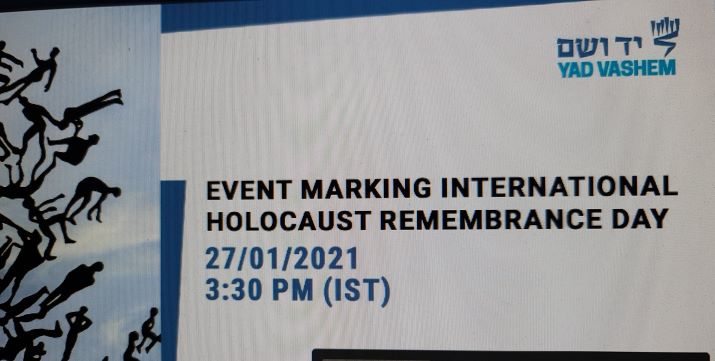
Shalev will participate in Yad Vashem's annual symposium for the International Diplomatic Corps serving in Israel, this year to be held online due to the current lockdown in Israel. Israel's President H.E. Mr. Reuven "Ruvi" Rivlin and H.E. Ambassador Gil Haskel, Chief of State Protocol, Ministry of Foreign Affairs will address the participants. Yad Vashem Senior Historian Dr. David Silberklang will also present a lecture, entitled "The Path from Mass Shootings to the Final Solution," relating to the central theme of the upcoming Holocaust Remembrance Day to be observed in Israel on April 8, 2021. The public is invited to watch this event live on Yad Vashem's YouTube channel on Wednesday, 27 January 2021 beginning at 15:30.
Online
Yad Vashem has created a mini-site marking International Holocaust Remembrance Day, featuring a variety of resources the public can view, share and engage in, including online exhibitions, educational resources and the unique IRemember Wall .
Yad Vashem will be hosting for the first time ever an online virtual guided tour of the permanent exhibition "Shoah" located in the Auschwitz-Birkenau State Museum. The virtual tour will take visitors through the Jewish Pavilion known as Block 27 in Auschwitz I, exploring the central themes of the Holocaust, offering insights into the rich Jewish life that existed prior to 1939 and the world of children during the Shoah, and showcasing the monumental Book of Names.
In addition to the virtual tour, Yad Vashem has curated and uploaded "My Lost Childhood," a new online exhibition featuring seven children's homes established after the end of WWII. Through the voices of survivor testimony, as well as artifacts, photographs and documents from Yad Vashem's unrivalled collections, this moving exhibition brings to life the terrifying ordeals of the children brought to the homes, and how they were gently assisted – often by survivors themselves – to re-enter normative society.
Worldwide
Members of Yad Vashem's senior staff, historians and educators will participate in various events and ceremonies around the world marking International Holocaust Remembrance Day.
Yad Vashem's Ready2Print exhibitions will be displayed in dozens of community centers and institutions around the world, including locations in Spain, Germany, Greece, the United Arab Emirates, Taiwan and the United Kingdom.
Yad Vashem, the World Holocaust Remembrance Center, was established in 1953.
Located in Jerusalem, it is dedicated to Holocaust commemoration, documentation, research and education. www.yadvashem.org
- Details
- Written by Silvia G. Golan
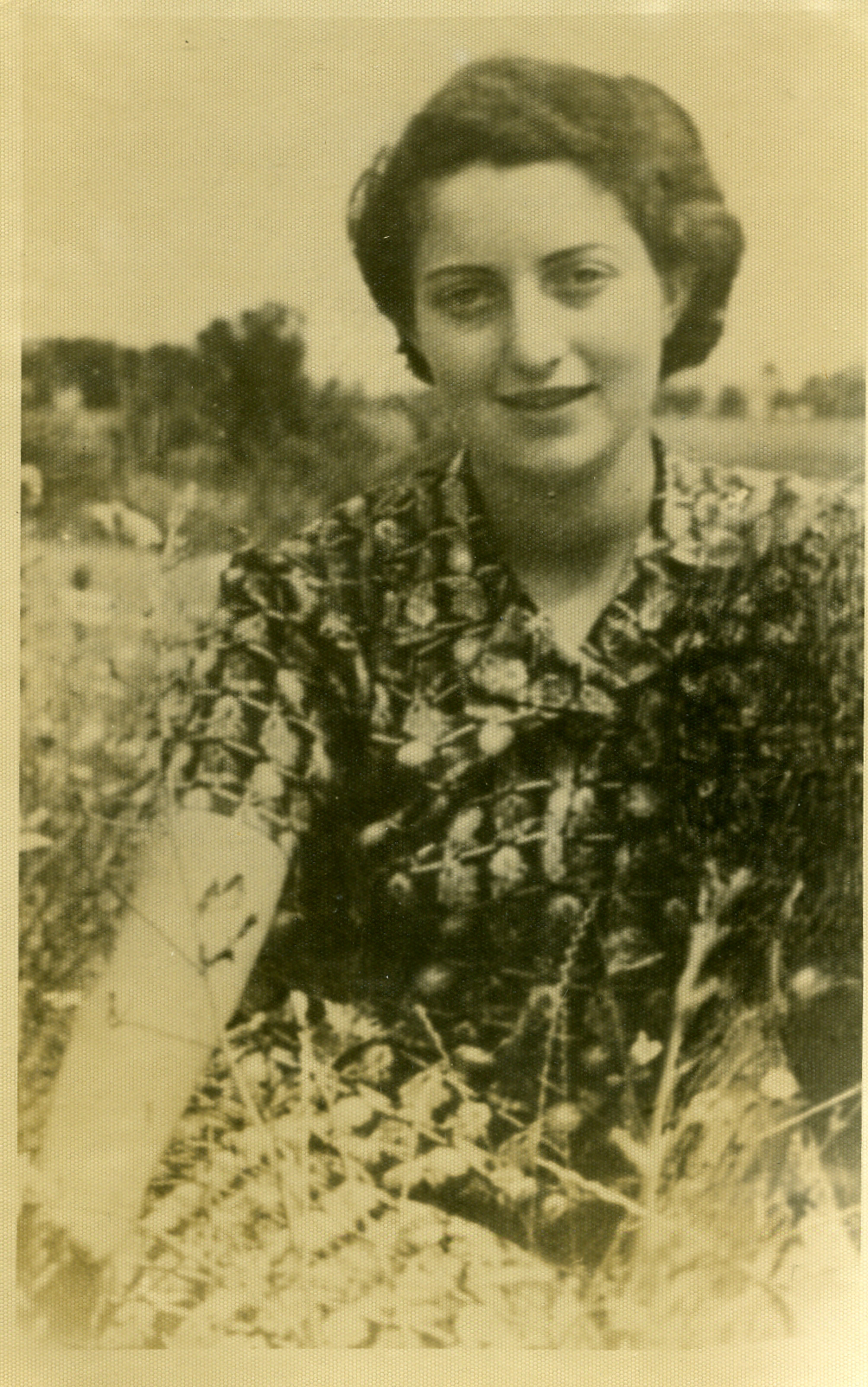
The only Yom HaShoah event dedicated annually to commemorating the heroism of Jews who rescued fellow Jews during the Holocaust
The B’nai B’rith World Center in Jerusalem and Keren Kayemeth LeIsrael (KKL-JNF) on Thursday, April 8, will hold, for the 20th consecutive year, a joint Holocaust commemoration ceremony on Holocaust Martyrs' and Heroes' Remembrance Day.
This is the only Yom HaShoah event dedicated annually to commemorating the heroism of Jews who rescued fellow Jews during the Holocaust. The ceremony will take place at the B’nai B’rith Martyr’s Forest “Scroll of Fire” Plaza at 10 a.m. Israel time.
Due to Covid-19 restrictions this year's ceremony will be held at the forest with limited attendance and will be broadcast live on YouTube.
The B'nai B'rith Martyr’s Forest is the largest joint B’nai B’rith and KKL-JNF project, which memorializes the victims of the Holocaust with six million trees planted in the picturesque Jerusalem mountains near Moshav Kesalon.
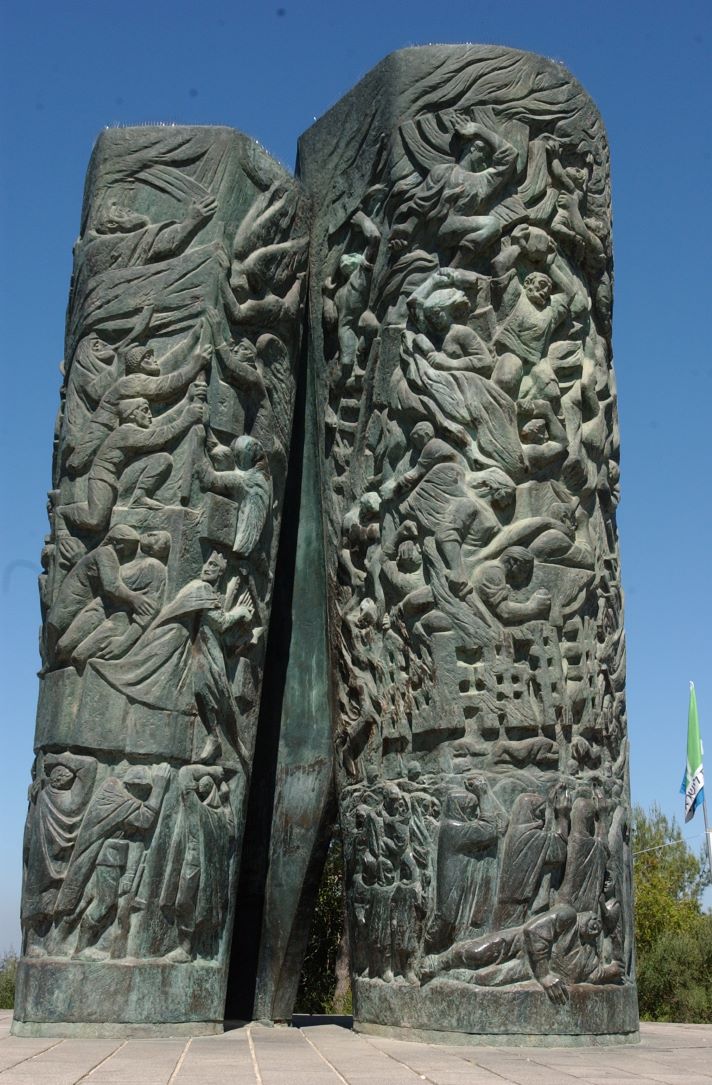
At the pinnacle of the forest stands the “Scroll of Fire,” created by renowned sculptor Nathan Rapoport, which invokes the destruction of the Jewish people in the Holocaust and their redemption in the State of Israel.
The event will commence with personal testimonies by Holocaust survivors and rescuers.
This year's ceremony honors Wilhelm Filderman and Itschak Artzi (Romania), José Aboulker (Algiers) and 10 other rescuers who operated in Poland, France and Belgium.
For the first time, two rescuers from Mandatory Palestine – paratrooper Hannah Szenes and WZO official Moshe Shapiro – will be recognized with the Jewish Rescuers Citation.
Photo Andarta Courtesy: Yossi Zamir.
Hannah Senesh picture: Courtesy: Senesh family.
- Details
- Written by Silvia
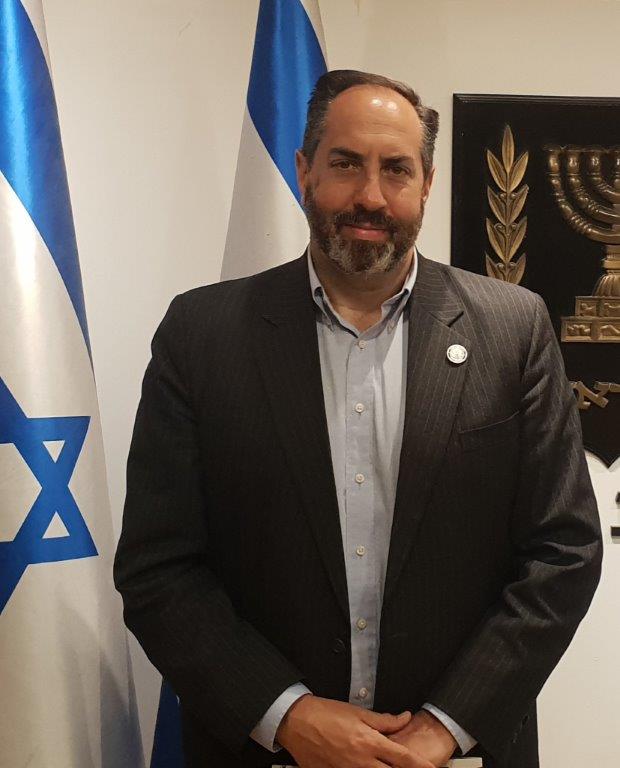
At their annual meeting, the Confederation’s board of directors voted to install entrepreneur David Yaari to serve as president and chairman of the board of the Confederation. This transition of leadership is reflective of the board’s desire to expand the activities of the organization and help increase the influence of the Confederation in the Zionist world.
Yaari is the founding Director-General of the Arizona-Israel Trade and Investment Office with an extensive record of community engagement and leadership. Named among the “Forward 50” of the 50 most influential Jews in America, Yaari has filled many senior roles in the business and philanthropic fields including currently serving as a director of the Israel Nature and Heritage Foundation, of the Society for International Development, and now a director of KKL - Keren Kayemet Leyisrael.
He is the proud father of Ori, Emily, and Adam and is married to Sivan Yaari, founder and CEO of Innovation Africa. “I am thankful to the Confederation Board for entrusting me to advance the cause of General Zionism and to expand ways for the Jewish world to connect with Israel,” said Yaari. “And I hope the Confederation can be such a bridge to engage the next generation and revitalize the Zionist movement.”
The board also voted to add two new directors: Sarri Singer, Founder and CEO of Strength to Strength, a not for profit that assists terror victims worldwide, and Ran Fuchs, a senior board member in the Israeli-American Council and Head of Capital Markets at IDB Capital.
As an additional step toward expanding the influence of the Confederation on the international Zionist movement, former Knesset member Dov Lipman was appointed to serve as the organization’s Secretary-General. Lipman, the author of eight books about Judaism and Israel, has spent the last 8 years strengthening the connection between Israel and diaspora Jewry and teaching university students about Zionism and Israel.
Jesse Sultanik, who served as the past Chairman of the Confederation will continue as an officer along with Marlene Post, past president of World Hadassah. It should be noted that Kalman Sultanik, Jesse’s grandfather, led the Confederation for nearly 60 years.
In a letter sent to the Chairman of the Zionist Executive Yaakov Hagoel, Yaari pledged to work with all the committees, leaders and departments in the national institutions to engage new constituencies and advance the Zionist movement.
Lipman commented, “I have long believed that Israel must serve as the great unifier of Jews worldwide and that an active Zionist movement is necessary to strengthen diaspora Jewry. David is most welcome choice to take this organization forward.”
About the World Confederation of General Zionists:
The Confederation of General Zionists is a faction in the World Zionist Congress that focuses on pure Zionism and strengthening the connection between Israel and diaspora Jewry. The Confederation does not represent any Israeli political party or religious stream and focuses on education, youth movements, next generation and future Zionist leadership and strengthening Zionist federations worldwide.
Picture of David Yaari (Courtesy: The Confederation of General Zionists).








